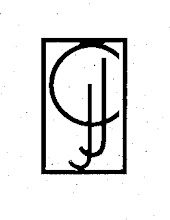I’ve spent an unreasonable amount of my morning searching for a bit of advice I came across while reading last week. Usually I try to keep Post-it Notes at hand for ideas I intend to archive or share with someone. But I was not reading in one of my usual spots and left the passage to memory (clearly the wrong course of action), which cleverly catalogued only the visual position of the passage on the page and no other details.
Had I read it in a book? A journal? A magazine? We may never know.
Fortunately, a friend interrupted my mania with an e-mail reminder that today is a holiday. It’s National Punctuation Day!
Now I realize I don’t mention many popularly recognized dates and events on Lull—mostly because the Web is full of chatter about them. But how can an editor let National Punctuation Day pass without saying something? Without providing a learning/teaching moment?
Before you press “Next Blog” because you think I’m going to go all Miss Thistlebottom* on you, be patient. I don’t care if you can’t tell your commas from your semicolons. But I do care whether misplaced or missing punctuation marks are preventing your writing from being understood.
Consider these two pairs of nearly identical sentences:
1A) Giselle complained Spencer couldn’t make the project deadline.
1B) Giselle, complained Spencer, couldn’t make the project deadline.
2A) Jackson quit suggesting he would sue the company.
2B) Jackson quit, suggesting he would sue the company.
In Sentence 1A, it’s Giselle who’s complaining; in Sentence 1B, it’s Spencer doing the complaining.
In Sentence 2A, Jackson ceases making suggestions about suing the company. But in Sentence 2B, Jackson resigns and suggests he’ll sue.
In each pair, the addition of a comma or two to Sentence B changes the meaning. This is important—much more important than which style guide you choose to follow. If readers miss your meaning because you didn’t know where to place a comma, you’re at fault. And you need to brush up on your punctuation skills. The National Punctuation Day Web site is a good place to begin.
* A reference to Theodore M. Bernstein’s charming Miss Thistlebottom’s Hobgoblins: The Careful Writer’s Guide to the Taboos, Bugbears and Outmoded Rules of English Usage.
Note: After making a couple of upgrades recently, graf spacing (among other things) is looking a little wonky on Lull now. I'll get it fixed sooner or later. Bear with me.
Subscribe to:
Post Comments (Atom)



No comments:
Post a Comment